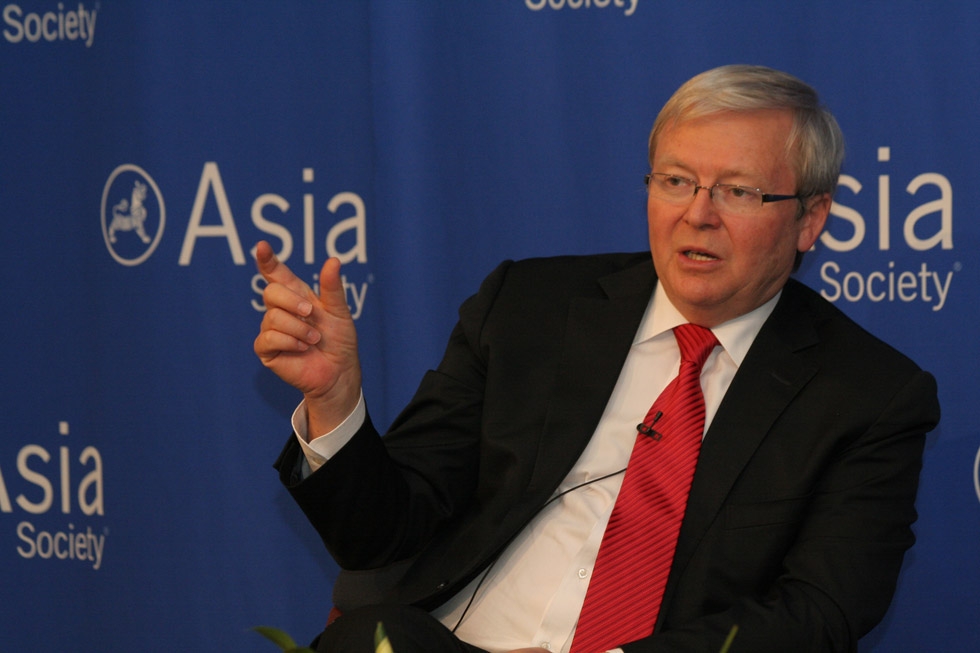Rudd: Asia Needs 'Pax Pacifica' as China Rises
Failure to do so could have “profound consequences for the world at large,” says Australian FM

NEW YORK, January 13, 2012 — Australia today called for a new international framework, or “Pax Pacifica,” to help Asia embrace China’s rise amid ongoing rivalries and differences between Beijing and Washington.
In a sweeping and detailed speech at Asia Society, Australian Minister for Foreign Affairs Kevin Rudd pointed to the dramatic surge of Chinese wealth and power over the past 30 years and its effect on America, Asia and the rest of the world.
“Major differences in the respective national interests and values systems of China and the United States will … be with us for the foreseeable future,” Rudd said. “But there is something in China’s concept of a ‘harmonious world’ which the U.S., the rest of the region and the rest of the world can work with.”
He said how Asia deals with China’s rise would have “profound consequences for the world at large” and not just for Asian peace and prosperity.
“As a Western, democratic nation of largely Judeo-Christian origin, fully engaged in practically all of the institutions of Asia, Australia finds itself in a unique position of experiencing the winds of change earlier than most,” he said.
He called for “the evolution of the rules-based order for the Asia Pacific.”
“If a common strategic vision ultimately proves to be elusive between the United States and China, then common strategic co-existence within the framework of agreed norms should not,” he said. "These are truly historic times. History has seen many peaces before — some lasting, others not. Pax Romana, Pax Brittannica, Pax Americana — all however underpinned by a single nation possessing dominant economic and military power.
“The task today is whether together we can craft something which the history books of the future might call Pax Pacifica — a peace that will ultimately be anchored in the principles of common security, recognizing the realities of U.S. and Chinese power as well as the continuation of U.S. alliances into the future. If we manage to craft such a common future together, then not just our children but the world at large, will thank us all for learning the lessons of history, not simply repeating them.”
Rudd pointed to forecasts that the Chinese economy is poised to outpace the U.S. economy and said the world must recognize the global implications of China being at the top of the global economic ladder.
“This will be the first time since the rise of the Spanish Empire 500 years ago that a non-western power will be the dominant global economic power,” he said. “And the first time since [Britain’s] Pitt the Younger that a non-democracy will be the world’s largest economy.
“The real question today is what does the rise and rise of China mean for the regional and global order — for peace, prosperity and stability for the immediate decades ahead.”
Rudd applauded progress made last year at the East Asian summit in Bali “where for the first time in the history of Asia – China, the United States and all the other principal states of the region sat around a common table at summit level to deliberate on the region’s future.”
He described it as “an historic opportunity to begin crafting a common vision for Asia’s future."
Reporting by Geoff Spencer
